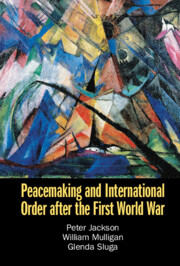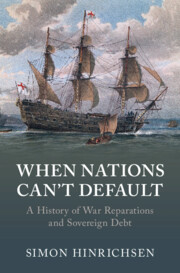Abstract:
Faire le bilan de 150 ans au service du droit international relève d’une gageure probablement insurmontable. Pourtant, il paraissait important de porter un regard rétrospectif, notamment sur ces femmes et ces hommes qui ont écrit les grandes heures de l’Association de droit international (ADI), apportant une contribution intellectuelle, à maints égards décisive, au droit international. Dans un monde en crise, à nouveau polarisé, il est urgent de retracer l’histoire et les apports de l’ADI au droit international. Le livre a été conçu en trois parties. La première partie présente l’état du monde en 1873 pour tenter de comprendre le contexte dans lequel les fondateurs de l’ADI ont conçu cette société savante. La deuxième partie présente l’organisation et les personnalités qui l’ont fait vivre. La troisième partie analyse l’influence des travaux de l’organisation sur le développement du droit international. — Taking stock of 150 years of service to international law is probably an insurmountable challenge. Nevertheless, it seemed important to look backwards, notably on the women and men who made the highlights of the International Law Association (ILA), thus providing for an intellectual contribution, in many respects decisive, to international law. In a world in crisis, once more polarised, it is urgent to recount the history of the ILA and its valuable inputs to international law. The book was conceived in three parts. The first part presents the state of the world in 1873 in order to understand the context in which the Founders of the ILA conceived this learned society. The second part presents the organisation and the personalities that have brought it to life. The third part analyses the influence of the organisation’s work on the development of international law.
On the editors:
Catherine Kessedjian est professeur émérite de l’Université Paris-Panthéon-Assas. Elle centre ses activités sur l’arbitrage, la médiation et la conciliation ainsi que sur le conseil dans le cadre de contentieux économiques transnationaux ou de la vigilance (due diligence). Elle est la présidente honoraire de la Branche française de l’ILA. Olivier Descamps est professeur à l’Université Paris-Panthéon-Assas et directeur du Centre d’Étude d’Histoire Juridique. Il est intéressé par les questions d’histoire du droit du commerce international, mais aussi par histoire le droit international public et le droit international privé. Teodolinda Fabrizi est doctorante en droit international public à l’Université Paris-Panthéon-Assas. Elle s’intéresse à la théorie du droit international, au droit de l’environnement, au droit de l’eau et aux droits de l’homme.
More information here.



